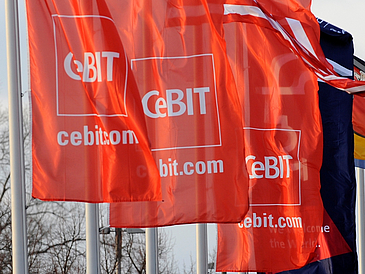Several research teams from the University of Bremen will be presenting their work to the public at this year’s CeBIT fair, which takes place in Hanover from Tuesday1st till Saturday 5th March. Among those attending the world’s largest computer fair this year are teams from the Bremen Institute of Production and Logistics (BIBA), the Institute of Automation (IAT), and members of the Arbeitsgruppe Rechnerarchitektur- AGRA [working group computer architecture] at the University of Bremen.
The AGRA will be presenting three examples of their work in Hall 9/Booth A08. Their research involves the design and construction of modern electronic systems – ranging from MP3 players to aircraft control systems. Among the examples on display will be a model railway which illustrates how axle counters can be used as a safety measure in the control of rail traffic.
This year BIBA is represented twice over: In Hall 9/Booth A08 visitors will be able to learn about the results of a research project on Predictive Maintenance, which entails the maintenance and servicing of machines with computer-aided systems. The BIBA team will also exhibit their “logistics factory bench”, by means of which they illustrate the complex interplay of logistical processes in the State of Bremen in a way everyone can understand.
BIBA is also presenting another two of its projects on the booth run jointly with AIM-D e.V., a leading trade association in the field of automatic identification (AutoID), in Hall/Booth D12 (AutoID/RFID Solutions): the ProKon research project (deployment of innovative information and communication technologies for process control in port-handling management) and RAN (RFID-based Automotive Network). Here, BIBA illustrates possibilities for automatic RFID identification and vehicle tracking along global logistics chains.
The Automation Institute (IAT) can be found in Hall 9/Booth 08, where they will present the BRAIN research project. This EU project investigates how robots can be remotely controlled by means of the human brain, for instance by concentrating on a task like opening the door or serving food. This technology harbors enormous benefit potential for disabled persons. For some years now, the researchers at IAT have been collaborating with partners in other EU countries on the project entitled “BCIs with Rapid Automated Interfaces for Non-experts” - or BRAIN for short. At this year’s CeBIT they will present the latest developments and invite visitors to participate in a hands-on experience.

